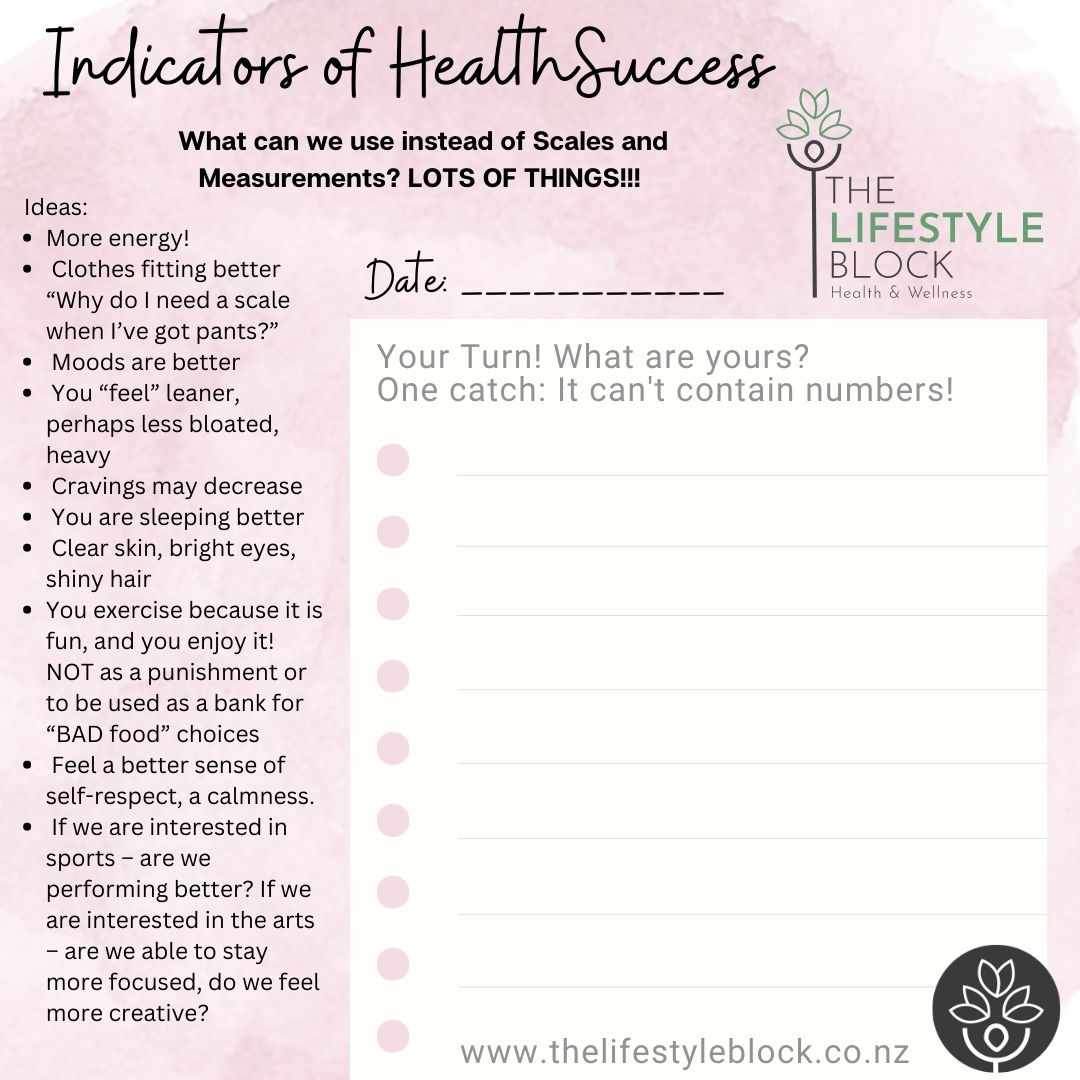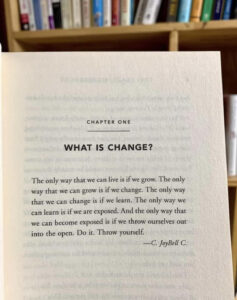Most people like to think of “losing weight” as the most important indicator of success… The number on the scale goes down, the inches around the waist and thighs decrease… but what happens once this is achieved?
Ever notice how your friends undergo “Weight-Loss Challenges”- only to gain the weight all back again in a few months? There are lots of reasons for this – one being that “losing weight” is simply only one metric of success. We need MORE! We need a deeper, stronger connection to our Baseline Health and Wellness.
Why can this be? Surely these metrics are helpful?
Every indicator of success has its place. HOWEVER, here at TLB we believe there are far better indicators of HEALTH success than weight and inches alone. These only tell a portion of the story.
We take a Macro approach to health and wellness looking at the whole picture. We’re looking for TRENDS – for deviations from our baseline. So we can’t just take one measurement or use one single metric to tell the story of how healthy we are.
We must examine a multitude of metrics, over time, in order to determine
a.) What is our baseline?
b.) Where are we trending?
c.) How to come back to baseline should we deviate from it.
Let’s have a look below:
Medical indicators
Some of the most helpful indicators of your health and wellbeing are available to you from simple medical tests (these don’t lie!). These are also available to you on current wearables (though, remember, these are ONLY A GUIDE, and we cannot base our decisions on wearables!!! They are a helpful tool, but not to be solely relied upon). Best to get these tests completed by a health professional for an accurate reading:
- Blood Pressure
- Resting Heart Rate
- HRV (Heart Rate Variability)
Other medical tests that are really eye-opening:
- Dexa Scan (Full Body Composition Scanning)
- Full Blood Panel
- CGM (Continuous Glucose Monitoring)
Behaviour Indicators
How has your behaviour changed? What ACTIONS are you starting to take?
- Moving more?
- Prioritising healthy food prepping and organising
- Striking a good balance between work and home-life
- Communication/Conflict resolution with others is better
- Taking “better care of yourself”
Psychological Indicators
How are you feeling inside your MIND?
- What are your thoughts like, has this changed?
- Overall feeling of optimism or hopefulness (perhaps in place of pessimism and/or despair)
- Less “perceived” stress (you may still have stress in your life, but perhaps it’s feeling a bit more manageable?)
- Less angry, irritable, restless
- More focused, driven, on task
- Stronger sense of confidence, self-love and appreciation
Physical Indicators
How is your BODY feeling? When you do a Full Body Scan, how do you feel?
- Clothes fitting well
- Not feeling bloated, no stomach cramps/aches
- Body “feels well” or “feels good” – no overly sore points (if there are, paying attention to them carefully)
- Sleeping better? (Falling asleep easier, staying asleep, less sleep disturbance)
- Waking feeling rested
- Notable changes in your body composition (seeing more muscle for example)
You’re starting to get the picture now, aren’t you? 😉
The key to health and wellness isn’t just ONE or TWO indicators (such as the weight on the scale or the number on a tape measure).
HEALTH INDICATORS help to give you a solid picture of your over all health success.
Spend some time to work out your unique Indicators of Health Success. You could write some down (using our template here), or simply reflect on them if that’s more your style. Your indicator of success may be wildly different from someone else’s! This is ok!
Make sure you put some real detail into it as well – VISUALISE each one! What would it look, sound, feel, smell, taste like if this indicator was achieved. Lean into it.
Key Message
a.) Be Prepared: Find your Baseline Health Success Indicators, get to know and understand them well.
b.) Be Reflective: Recognise/develop an awareness when you deviate from these Indicators – What was happening, what were you thinking? Where were you? Who were you with? What were you doing?
c.) Take Action… this is where you need to “course correct” – if you deviate from baseline, you need to take steps to come back to it. TLB Online Hub was designed to give you these steps to bring you back to yourself, and back to baseline. Keep reading and exploring our site, and following along with our posts.






